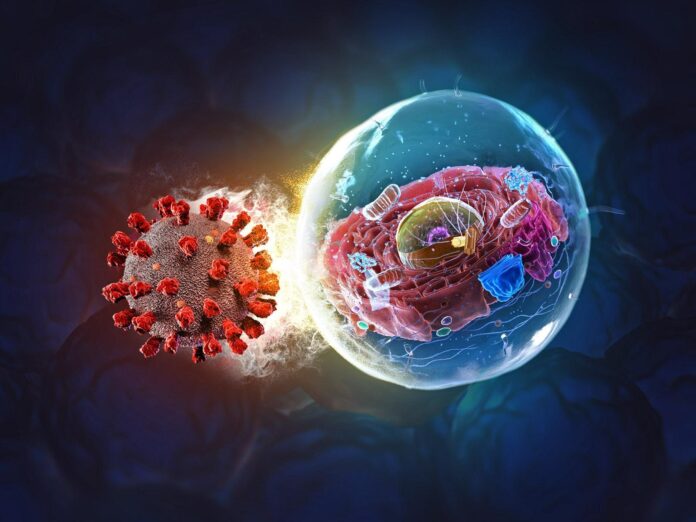Exposure to air pollution–derived ultrafine particles alters gene transcription by epigenetic mechanisms, a new study shows. The changes affected, for example, cellular survival.
The study, led by the University of Eastern Finland, is the first to construct an integrative network combining RNA sequencing, microRNA sequencing and DNA methylation analysis to investigate gene regulatory mechanisms induced by ultrafine particles in human cells. The findings were published in Environment International.
Ultrafine particles (UFPs) are the smallest contributors to air pollution deriving largely from traffic. They are an emerging health concern affecting the brain and playing a part in the tangled web of neurodegenerative diseases, such as Alzheimer’s disease (AD). A growing body of evidence suggests that air pollution can modulate gene transcription via epigenetic mechanisms such as DNA methylation and microRNAs, but this is far less studied in the context of UFPs.
The olfactory mucosa, located at the rooftop of the nasal cavity, is directly exposed to the environment and in contact with the brain. Alarmingly, especially UFPs deposit effectively in the nasal area. Disturbances in olfactory detection have been associated with environmental pollutants, and olfactory dysfunction is one of the earliest clinical symptoms of AD.
The research group led by Professor Katja Kanninen at the University of Eastern Finland utilizes a physiologically relevant human-based in-vitro model of the olfactory mucosa, which is generated from cells obtained from voluntary donors and collected in collaboration with Kuopio University Hospital.
“The association between air pollution and AD is well established; however, the understanding of the molecular mechanisms of how air pollutants are involved in AD pathobiology remain obscure. This study delves deeply into one signaling pathway connected to AD to understand these complex interactions of how environmental stressors shape our bodily responses,” says first author, Doctoral Researcher Laura Mussalo of the Kanninen Lab.
The study explored molecular-level mechanisms of how traffic-derived UFPs influence gene regulation in human olfactory mucosa cells. Researchers specifically explored these changes in the PI3K/AKT signaling pathway, which is a master regulator of cellular growth and survival in nearly every organ system in the body and also known to be altered in AD.
Moreover, PI3K/AKT signaling is known to be disturbed by constituents of air pollution, resulting in adverse effects such as mitochondrial disturbances and apoptosis. To this date, the connection between UFPs, AD and PI3K/AKT signaling has not been investigated.
This study provides molecular-level evidence of the impairment of the PI3K/AKT signaling pathway induced by exposure to UFPs. The study also shows that UFPs modulate cellular survival through PI3K/AKT signaling via complex regulatory networks involving epigenetic mechanisms, such as DNA methylations and microRNAs.
Many genes related to cell cycle and apoptosis were affected, however, without notable cell death, suggesting possible adaptation mechanisms which olfactory cells may have against environmental insults, such as UFPs. In addition, the responses of AD cells deviated from the responses of healthy control cells, suggesting that cells derived from individuals with AD are increasingly vulnerable to the adverse effects of UFP exposure.
More information:
Laura Mussalo et al, Traffic-related ultrafine particles influence gene regulation in olfactory mucosa cells altering PI3K/AKT signaling, Environment International (2025). DOI: 10.1016/j.envint.2025.109484
University of Eastern Finland
Citation:
Traffic-related ultrafine particles found to influence gene regulation in olfactory cells (2025, April 28)
retrieved 29 April 2025
from https://medicalxpress.com/news/2025-04-traffic-ultrafine-particles-gene-olfactory.html
This document is subject to copyright. Apart from any fair dealing for the purpose of private study or research, no
part may be reproduced without the written permission. The content is provided for information purposes only.

